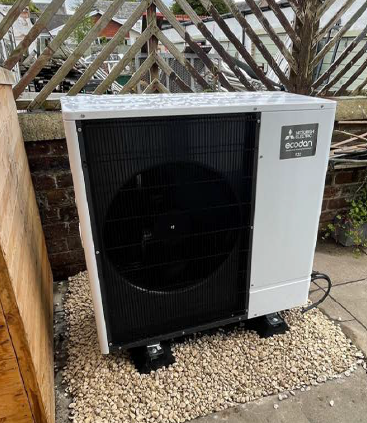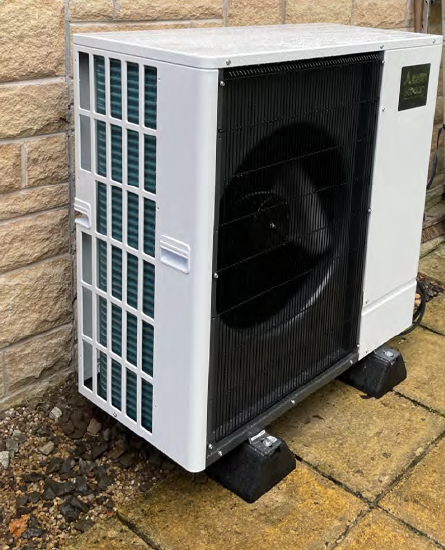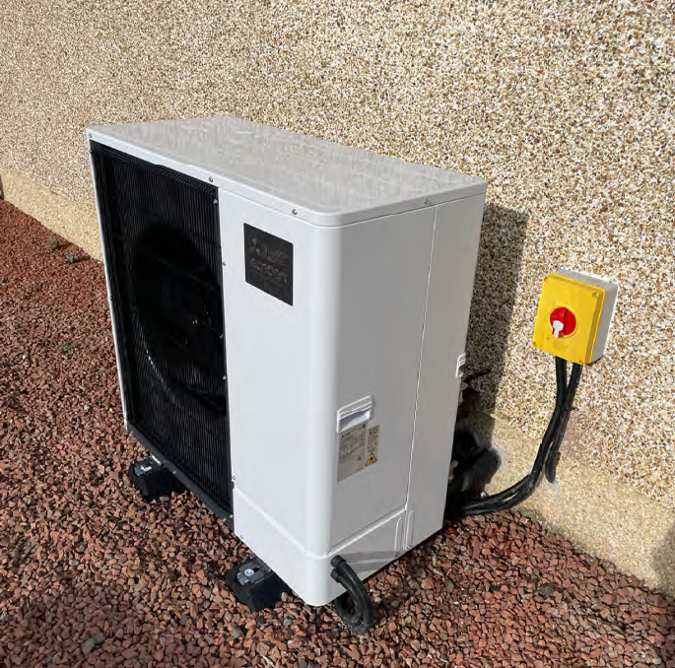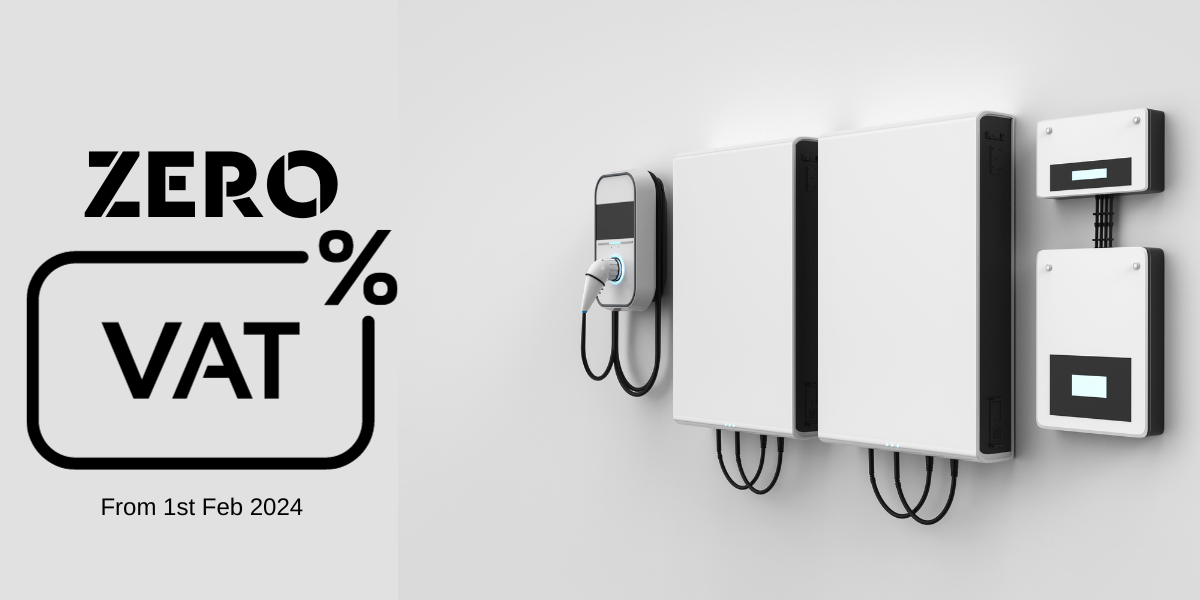Air Source Heat Pump Cost
Air Source Heat Pump Costs & Savings: Making Your Home More Sustainable
Are you thinking about the future of your heating expenses? Stop for a moment! Air source heat pumps (ASHPs) are the best option for you. These modern systems use ambient air to produce effective and sustainable heating, resulting in significant savings and ecological benefits in Scotland. However, before taking the plunge, it is important to understand costs, technicalities, and compatibility issues that will enable you to make an informed choice.
Main Points:
- ASHPs boast substantial savings: Expect 30-50% lower heating bills compared to gas boilers, thanks to high efficiency and government grants.
- Technical considerations: Noise levels vary between air and ground source pumps, and maintenance needs include annual check-ups and filter cleaning.
- Compatibility with existing systems: Upgrading radiators, pipes, or hot water cylinders might be necessary for seamless integration.
- Environmentally friendly: ASHPs generate significantly lower carbon emissions than gas boilers and utilise sustainable refrigerants like R32.
- Scotland's green push: Generous government grants and carbon offset programs make the switch to ASHPs even more attractive.
Unveiling the Cost Equation of Heat Pumps

What is the average price of an air source heat pump in Scotland?
Most 3-bedroom houses in Scotland have a range of around £12-17k for ASHP installation. This is due largely to size, insulation levels and desire to heat. However, do not be put off by these costs! The Home Energy Scotland Grant Scheme can give you up to £7,500 plus additional £1,500 uplift for rural areas and £7,500 through an interest free loan are factors that significantly reduce the burden. In this respect, if one also considers that gas boilers cost between 700-1200 pounds per annum in running costs on average alone, then it becomes clear that ASHPs make a lot of financial sense.
Technical Considerations: Whispering Efficiency or Roaring Engines?
Though generally quiet as they run, there are slight differences in the level of noises produced by different brands and types. Air source pumps tend to be noisier than ground source equivalents with standard decibel readings ranging from 45 to 55 dB for air and 35-45 dB for ground source. Additionally fan speed compressor type and placement matter.
Some ways you can go about this include; vibration dampeners, positioning it away from living spaces such as bedrooms or living rooms and outdoor unit sound barriers. Even after maintenance which includes fan cleaning and lubrication frequent operational noise can still be reduced further. For our intro period we target at 41dB for our indoor unit.
Maintenance Matters: Keeping Your ASHP Purring

Just like all mechanical systems, ASHPs need maintenance for performance optimization and extended life. More so, annual check-ups are critical to ensure safety and efficiency while filters should be cleaned on a regular basis (usually monthly during the heating season). Some parts such as pumps and compressors may sometimes demand replacement which in turn comes with some costs contingent on individual parts and warranty coverage.
Finding skilled heat pump technicians ensures that you have dependable maintenance. Look for MCS-certified engineers entitled to design, install and service ASHPs in Scotland. Use online directories or maybe recommendations from satisfied customers to find one that suits your needs.
Can Your System Play Nice with an ASHP? Compatibility Check
Not all existing heating systems seamlessly integrate with ASHPs. In particular, compatibility revolves around factors such as boiler type, radiator effectiveness, and water temperature demands. Old boilers may require replacement while some radiators might necessitate upgrades that maximize heat output at lower water temperatures. Buffer tanks plus hot water cylinders may also be required for best performance.
The retrofit costs will vary depending on what adjustments are necessary for compatibility improvement. To get an exact figure of cost it is better to consult a qualified installer who can give an accurate estimate and assess the feasibility of integrating your existing system with an ASHP.
Going Green with Heat: A Carbon Footprint Showdown:
One of the most compelling aspects of ASHPs is their significantly lower carbon footprint compared to gas boilers. Over a year, a typical ASHP generates around 40% less CO2 emissions than a gas boiler for heating a three-bedroom house, assuming average usage patterns and regional energy sources. This disparity widens for larger houses and higher heating demands.
Scotland's ambitious green energy goals are further incentivising the switch to ASHPs. Generous government grants and carbon offset programs like the Scottish Government's Home Energy Scotland Grant Scheme can significantly reduce the upfront cost and reward sustainable heating choices.
Refrigerant Revolution: Breathing Easy with Eco-Friendly Options:

While ASHPs offer undeniable environmental benefits, the type of refrigerant used also plays a crucial role. Traditionally, refrigerants with high Global Warming Potential (GWP) were common, but concerns about their impact on the atmosphere have led to a shift towards sustainable alternatives. Today, ASHPs increasingly utilise refrigerants like R32 with significantly lower GWP and low flammability. CO2 is another promising option due to its natural origin and near-zero GWP.
Therefore, prioritising ASHPs using R32, CO2, or other low-GWP refrigerants is a responsible choice for a sustainable future
End-of-Life Considerations: Bowing Out Gracefully:
When your trusty ASHP reaches the end of its lifespan (typically around 10-15 years), responsible disposal is crucial. Fortunately, ASHPs contain valuable materials like copper and aluminium, making them highly recyclable. Most manufacturers offer take-back programs for proper dismantling and recycling of components. Additionally, several recycling facilities across Scotland specialise in recovering refrigerants for safe disposal or reuse. Choosing an ASHP from a manufacturer with strong recycling commitments ensures your choice extends its eco-friendly impact even beyond operation.
Investing in Your Future: A Warm Embrace of Sustainability:
Embracing air source heat pumps is not just a financial decision; it's a conscious choice for a cleaner, greener future. Lowering your carbon footprint, contributing to Scotland's renewable energy goals, and enjoying substantial cost savings are just a few compelling advantages. With reliable technology, government support, and increasing focus on sustainable refrigerants, the time for ASHPs in Scotland is now.
Ready to Unplug from Fossil Fuels? Take the Next Step:
Interested in exploring the possibilities of air source heat pumps for your home? Here are some helpful resources:
- Home Energy Scotland Grant Scheme: https://www.homeenergyscotland.org/funding/
- MCS (Microgeneration Certification Scheme): https://niceic.com/for-the-trades/professional-standards/schemes/mcs-scheme/
- Energy Saving Trust: https://www.heatpumpsscotland.com/
Don't hesitate to reach out to qualified MCS-certified installers in your area for a personalised consultation and quote. Investing in an ASHP may seem like a leap initially, but the long-term rewards – financial, environmental, and for your own peace of mind – are well worth the journey. Take the first step towards a warmer, more sustainable future for your home and embrace the power of air source heat pumps in Scotland!




